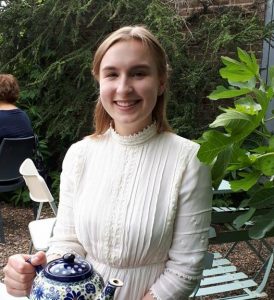
This project involves accumulating all of Wilde’s oeuvres, both published and previously unpublished, in order to assemble them together to produce a book for Oxford University Press: by no means an easy feat! Knowing also that this project had already been going on for a few years was quite daunting for me at first, and I certainly felt the sense of responsibility that went with all the tasks I was undertaking.
More specifically, we were looking at Wilde’s epigrams, and this involved three main activities: transcribing his manuscripts, researching the epigrams to find out if they feature in any of his other works such as his plays, or if anything else written in the period might have influenced him, and, finally, cross referencing all the manuscripts. There was therefore a real variety of work, which I particularly enjoyed, and a real sense that everything I was doing was contributing not only to my summer project, but also to the wider project as a whole.
I’ve always been fascinated by writers themselves and how their experiences shaped what they wrote, so this project gave me a wonderful insight into this: not only was I able to read and decipher Wilde’s own (sometimes beautiful, sometimes nightmareish) handwriting from some of his manuscripts, I also looked into other material from the period to see if anything that was written contemporaneously might have influenced him – it’s not everyday you get to delve deep into newspaper articles from 1894!
As a joint honours English and French student, this project also enabled me to use skills from both disciplines, as some of Wilde’s manuscripts are written in (not entirely accurate!) French from his time living in Paris after the trial. I particularly enjoyed a rather bizarre account of Wilde’s encounter with his hairdresser.
Overall, this project was an invaluable experience and such a wonderful opportunity for which I feel incredibly grateful. As someone who doesn’t really know what I want to do as a career, this experience gave me so many different opportunities and skills which I think would be useful for a wide range of paths. It taught me so much about the editing process and just how much attention to detail is required – not a task for the faint-hearted! And more importantly, it gave me a real insight into academic research, and all the sorts of things which that will entail. Both through the process of trial and error, and with Rebecca Mitchell’s helpful tips, I now feel so much more comfortable with the prospect of starting my own research projects, such as my dissertation, in the future, and I certainly know that I would like to carry out my own postgraduate research at MA or even PhD level.
Hannah Francis, BA Modern Languages and English
